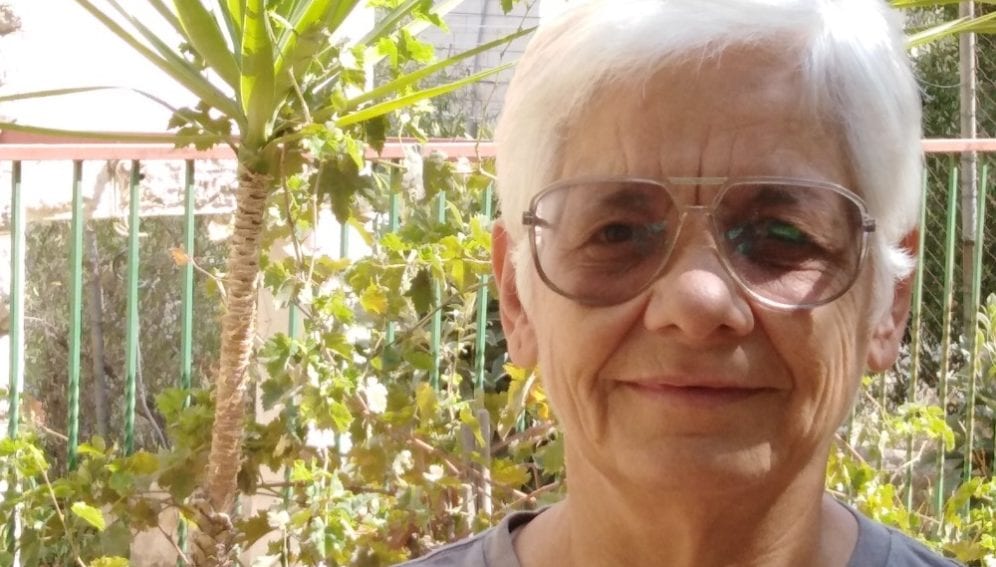By: Maria Bolevich
Send to a friend
The details you provide on this page will not be used to send unsolicited email, and will not be sold to a 3rd party. See privacy policy.
Georgette Kidess is the first and only female neurosurgeon in Palestine. An accident in which her neighbour lost her life due to a hematoma triggered her passion to pursue this unlikely career path.
The journey has not been easy, she admits, but says helping a patient to recovery makes it worth every effort.
In 1972 Kidess had the opportunity to continue her education at Ebehard Karls Univeristy, in Tubingen, Germany, where she completed her Bachelor of Medicine and Doctor of Medicine degrees. She spent seven years as an intern at the neurosurgical clinic of the University of Kiel, in Germany, before returning to Palestine in 1986.
Today she works as a consultant, advising patients about non-surgical treament at Saint Luke's Hospital, Nablus, and the Red Crescent Hospital, in Al Bireh. She spoke to SciDev.Net about her journey.
After facing so many obstacles in your career, was it worth it and what lessons have you learnt?
When I look back, I think this career was worthwhile, as I could cover the gap left during the Intifada (1987-91 Palestinian uprising). Anyone who was injured could come and receive treatment in a goverment-run hospital where neurosurgical services were just getting started.
The biggest lesson was to put in as much effort as necessary to achieve the aim – of helping the patient to recover. [This included] encouraging family members to help achieve that goal, giving them steps to use and educating them about how to do it… Many were open to learning and saw how their injured family members were recovering quickly as they contributed to their wellfare.
You are still the only female neurosurgeon in Palestine and one of the first neurosurgeons in any Arab country. How does that make you feel?
Not proud, but thankful and grateful that I received grace from God to work in the specialism that I liked most.
You are one of the founders of the Palestinian Neurosurgical Society, founded in 2014. What challenges did you face setting it up and how important is it to have a society like this?
The most challenging thing in having a Palestinian Neurosurgical Society is getting all our colleagues together and helping to upgrade neurosurgery [in Palestine]. Achieving that is still our aim.
It is very important to have all neurosurgeons together under the umbrella of the Palestinian Society as a foundation, upon which it can grow and gradually raise its profile.
I read that once you searched hospital bins for two hours to find the biopsy sample of a patient which was accidentally dumped…
Yes, the biopsy was taken from a patient with a brain tumor who had gone to the intensive care unit for recovery. After surgery I packed the biopsy in a special container… to be sent to a pathological department for evaluation to determine what further treatment was needed.
I decided to make the utmost effort to search for it until I found it. It was solely my responsibility… I knew it was my job to do it. I searched all possible places, including, finally, the container that had all the hospital waste from that day. It was dirty and stinky, but I raked through it with gloves on until I found it. I was very happy, surprised that it was preserved, still closed and signed as I prepared it.
“You will face problems and hardships on your journey but know each problem will have a solution,”
Georgette Kidess, neurosurgeon
What was the greatest obstacle you faced in your career and how did it affect you mentally and physically?
The biggest obstacle was when I was operating on a large brain tumor for many hours to remove it and a colleague opposed my work. It affected my colleagues in the theatre, as well as the family of the patient, who were waiting outside. That made me very upset and angry… It affected me deeply emotionally and physically.
The family of the patient was also angry because I did the surgery, and my colleague gave them advice contrary to what I was telling them. I told them that we all have a different opinion and philosophy and must make our own decision accordingly, and the patient must also ultimately choose and make his own decision.
What can be done to help other women become neurosurgeons and what advice would you give Arab women considering this path?
I would encourage all those who want to, to give neurosurgery a go. It needs extra effort, continuous learning and hard work to achieve excellence. [But] you are needed as well as your male colleagues. You can make it much better than I was able to, with the facilities you have now.
My advice for you is to take care of your patients, deal with them respectfully, and have a goal that you will make it better and better next time. You will face problems and hardships on your journey but know each problem will have a solution… don't focus on the problems but how to solve the problem.
Do you believe that it is possible to secure a bright future for women interested in neurosurgery?
You should always be optimistic, do your best and you will receive the fruits of your labour. There is a brighter future for women in recent decades than 50 to 40 years ago.














